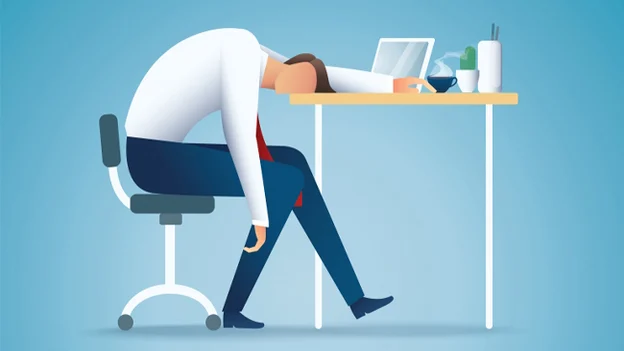What is Fatigue?
Fatigue refers to an overall feeling of tiredness or lack of energy. The term is used to describe mental and/or physical exhaustion that stops a person from being able to function normally and is more than simply feeling sleepy. Factors both in and outside of the workplace can be sources of fatigue.
What are the work-related factors influencing fatigue?
- working in awkward working postures
- extended hours of work
- working in noisy environments
- working in increased humidity
- Shift work
- Job design
- Work stress
- working a second job
- medication
According to Ergo Focus, In South Africa, life factors (non-work related) also play a role, such as long commuting times, bad nutrition, impaired health, alcohol & drug abuse, and living conditions that do not promote good rest between shifts.
Human factors exist and play a role as well, such as medical illness or disease, emotional factors and social obligations.
What are the symptoms/signs of fatigue?
- Chronic tiredness or sleepiness
- Micro sleeps – falling asleep for less than a second to a few seconds, and being unaware that you have done so
- Headache or dizziness
- Sore or aching muscles or alternatively muscle weakness
- Slowed reflexes and responses
- Impaired decision-making and judgement
- Moodiness, such as irritability
- Impaired hand-to-eye coordination or blurry vision
- Appetite loss or reduced immune system function
Here are the 10 dangers facing fatigued workers:
- Improper safety enforcement and major injury
Workers in manufacturing, construction or operations are required to be focused and alert at all times. Many industrial disasters and transportation industry crashes have been linked to fatigue.
- Impaired motor skills
The effects of fatigue have often been compared to the effects of alcohol; “17 to 19 hours without sleep has the same effect as a 0.05% blood alcohol level. Employee response times can be cut in half, much like when someone is intoxicated” – The Journal of Occupational and Environmental Medicine.
- Poor decision-making and risk-taking
Studies show losing sleep can lead to riskier behaviour. Employees may make impulsive decisions without realizing it.
- Impaired memory and information processing
Everyone experiences cognitive inefficiency when fatigued. Sleep is necessary to consolidate a memory (make it stick) so that it can be recalled in the future. Without adequate sleep, the brain has a harder time absorbing and recalling new information.
- Falling asleep on the job
Micro-sleep is a result of sleep deprivation and exhausted employees may try to stay awake, but their eyes will shut unintentionally while working. The probability of falling into micro-sleep is much higher for workers who perform repetitive or mundane tasks. Falling asleep while driving or performing a medical procedure can have severe consequences.
- Special risk for shift worker
Ensure there is sufficient cover for staff on annual or sick leave. If overtime is necessary, plan for it so employees can schedule their activities around it. Limit overtime to ensure staff are getting sufficient breaks between shifts. Develop a policy that specifically addresses and sets limits on working hours, overtime and shift-swapping, and which guards against fatigue.
- Inability to deal with stress
Feelings of not coping can lead to anxiety, distress, insecurity and low mood. Getting less than seven to eight hours of sleep per night can have lasting effects on mood and stress levels. Stress is very powerful and it can negatively affect the body in a number of ways, including causing brain fatigue.
- Sleep deprivation reduces productivity
As work hours increase, output decreases and performance levels falter. Employers may lose the equivalent of days’ worth of work throughout the year as ensuing fatigue influences efficiency and overall health.
- Sleep deprivation impacts workers in the long-term
Make sure employees understand why they need to manage the risk of fatigue and how to minimise their fatigue level
- Overlooking signs of fatigued workers
Learn the warning signs of fatigue and recognise them in yourself and co-workers, so that you can take a break or have a power nap.

